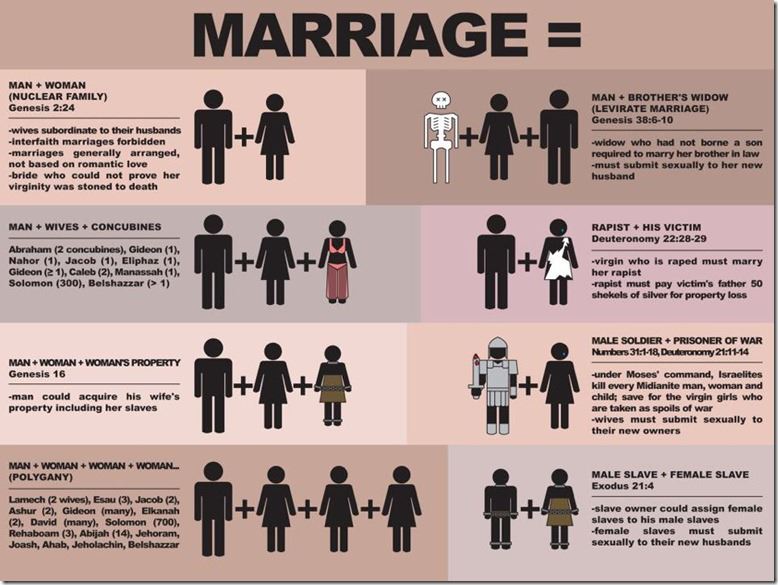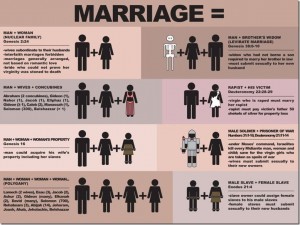Over the past few days, I’ve been engaged in some interesting conversations that all began with a simple picture I posted on my Facebook status. It’s largely about same sex marriage, but the 60+ comments in the thread get very quickly to issues of how we interpret the Bible. If either topic interests you, I think you’ll enjoy the interactions on my Facebook timeline.
Then, this morning, the preacher at the church I attended made some excellent comments about how we understand the Bible. The basic message of the Gospel is so simple that a child can understand it. In fact, in order to understand it you need to approach it with child-like (not childish!) faith and trust. But there are parts of the Bible that are very complicated and complex, because they are talking about God. If they were easy to understand it would make a mockery of who God actually is: above and beyond us.
Our preacher was much more eloquent than this. And it’s a wonderful point to make. The simple parts of the Bible are simple enough for a child to understand and accept. And we need help with some of the other parts that are difficult to understand.
But it struck me that there is a corollary to this thought – and that is about what children might believe about God before we impose our doctrines on them.
In the Facebook conversation during the week, one of the common themes of those people arguing that homosexuality is wrong is that this is “the plain reading of the texts” on this topic. This sounds like a strong argument, but it is not – for many reasons. But here’s one more reason.
If you asked a 7 year old child if they thought that God hated two men just because they loved each other and wanted to be together, almost every innocent child in the world would say, “No”. Surely God doesn’t hate them just because they love each other? (By the way, this test applies to many self-evident truths: does God like it when people lie or steal? Is God happy when Daddies and Mommies divorce? I think children would provide the right answer to almost all “self evident” sins).
So, if children would not understand why homosexuality would be considered wrong by God, then it must be the case that this issue is one of the “difficult to interpret” parts of the Bible.
It’s a simple point, really, but an important one. The seven verses/passages that talk against homosexuality are definitely in the category of “difficult” and need careful interpretation. They cannot just be taken at “face value”. And they do NOT say what they seem to say at first reading.
The same, by the way, is true of Genesis 1-11 and the age of the earth, the sections on slavery, the instructions about nobody with disabilities being allowed to serve in church leadership, tattoos, levirate marriage, polygamy, war, sacrifices, and many other issues. It’s an interesting test, this child-like understanding of God. I like it.
So here’s something your church should be teaching: listen to the children BEFORE you teach them your bigotry.





